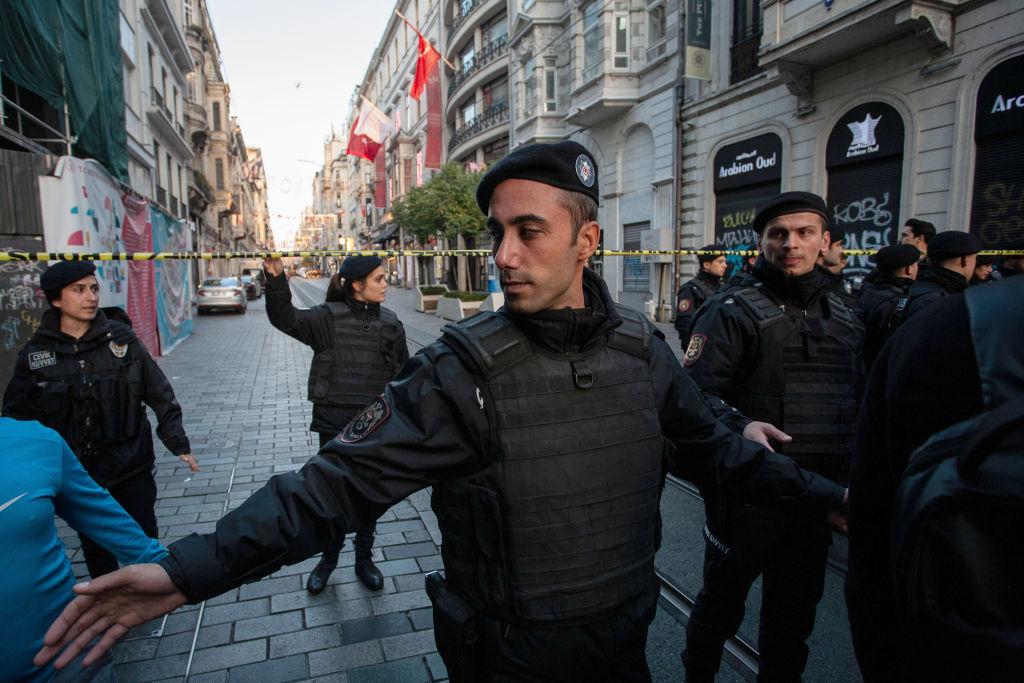Planet A
Delegates to the COP27 summit from nearly 200 countries last weekend agreed to establish a ‘loss and damage’ fund, which is intended to compensate developing and climate-vulnerable countries that suffer from global heating and weather extremes. The fund is a response to longstanding calls for industrialised nations to pay climate reparations and has been described as a new method to build trust and solidarity.
Details of the fund, including financial and structural arrangements, still need to be negotiated and considerable challenges to securing funding remain. It’s also unclear whether current bilateral arrangements, such as Australia’s climate change and resilience funding to the Pacific, might change under this new deal.
While the announcement of the fund has brought some optimism in the climate fight, the summit’s failure to reach agreement on a strong commitment to curbing fossil fuels has many worried about the prospects for limiting warming to 1.5°C above pre-industrial levels, which will ultimately determine the extent and severity of climate disruptions.
Democracy watch
The human cost of Iran’s anti-regime protests continues to rise, with latest estimates putting the death toll at more than 300. Around 16,000 protestors have been arrested so far, and human rights groups are raising the alarm about the experiences of minors in the government crackdown. At least 33 people under the age of 18 have been killed by security forces and an estimated 500–1,000 minors are being held in detention.
Sparked initially by outrage at the death in police custody of Iranian woman Mahsa Amini on 16 September, the protests have come to represent people’s broad dissatisfaction with the power of hardline clerics in the Islamic republic, with women and young people taking a leading role. The protests show few signs of abating, and government forces are turning to increasingly brutal methods of repression. Security forces are now reportedly raiding schools to intimidate and arrest students suspected of having any connection to or sympathies with the protests.
Between the heavy-handed response from the government and the clear determination of the protestors, prospects for a peaceful resolution appear dim.
Information operations
French President Emmanuel Macron has accused Russia of conducting a disinformation campaign in Africa that seeks to undermine France’s reputation and interests by blaming the West for current food shortages. Macron said he was also concerned that other states were pushing predatory misinformation to gain greater influence across the continent.
Macron’s statements were issued in an interview with a French TV channel during the 18th summit of the International Organisation of La Francophonie in Tunisia. The OIF is an international organisation representing 88 member countries with large French-speaking populations.
The OIF conference and Macron’s interview came after the formal withdrawal of French troops from Mali at the start of this month. France pulled its troops out from an eight-year counterterrorism campaign against jihadi groups following a coup in 2021, which resulted in Mali’s new military government inviting the Russian Wagner mercenary group to train and assist its forces. The withdrawal of French troops and ongoing Russian disinformation will potentially weaken France’s influence and bolster Russia’s power in West Africa.
Follow the money
Australia is under increasing pressure to impose economic sanctions on Myanmar’s military junta. A recent Amnesty International report exposed supply chain links to Myanmar’s military rulers and called for states to suspend exports of aviation fuel to the country. After leaked documents revealed transactions between ANZ Bank and Innwa Bank—owned by military conglomerate Myanmar Economic Corporation—ANZ faced significant pressure to cease operations in Myanmar. The revelations also prompted requests for Australia to join the UK, US and EU in introducing financial measures against Myanmar Economic Corporation.
While Australia has banned arms exports to Myanmar and frozen the assets of five military commanders of the regime, the government has been reluctant to impose broad sanctions. One of the reasons for this was the uncertainty surrounding the fate of an Australian citizen being held in Myanmar. Last week, however, Sean Turnell, an economist and adviser to deposed leader Aung San Suu Kyi, was released from prison in Myanmar and returned home to Australia.
Yet if Australia imposes sanctions now, it may lose the bargaining chip thought to be instrumental in Turnell’s release. That raises the question of how Australia can maintain its negotiating power while assisting the international community in limiting the junta’s access to the global financial system.
Terror byte
Turkish police have arrested 17 suspects accused of facilitating the street bombing that killed six and injured at least 80 civilians on Istanbul’s crowded Istiklal Avenue two weeks ago. While Turkish authorities are reporting that the suspected bomber confessed her connection to the militant Kurdistan Workers’ Party in interrogations, the globally blacklisted Kurdish terror group is denying any involvement.
Nonetheless, Turkey launched retaliatory airstrikes against almost 100 Kurdish targets throughout Syria and Iraq, reportedly killing ‘many terrorists’. Kurdish forces, unable to counter Turkish airpower, responded with mortar attacks from inside Syria that killed a teacher and student when shells landed in a school near the Syrian border.
Following the airstrikes, Turkish President Recep Tayyip Erdogan raised ‘serious concerns’ internationally when he said that the operation wouldn’t be limited to an air campaign. Turkish airstrikes in Syria’s north are now compounding the widespread damage wrought by Israeli and Russian raids further south, prompting commentators to suggest that the airstrikes mark ‘a new era’ in the ongoing Syrian war.


